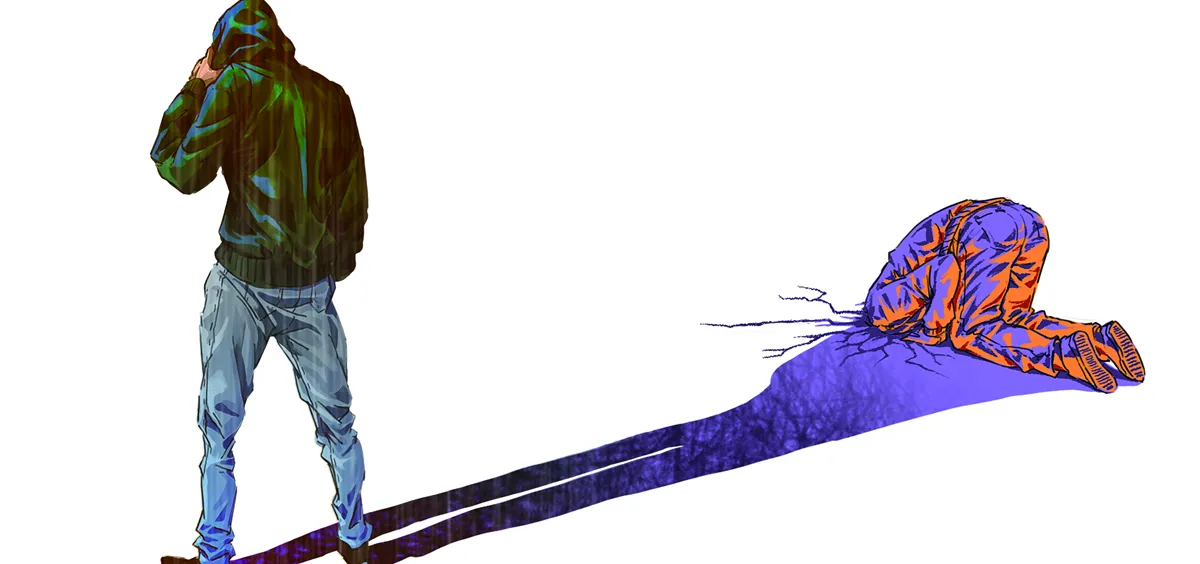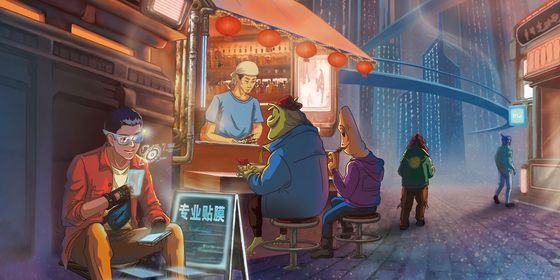Why young Chinese describe themselves as “socially dead”
In a quiet corner of the internet, 223,686 “corpses (尸体 shītǐ)” abjectly declare themselves to be “dead.” They share the stories behind their demise in forums titled “Corpse Cremation Section (尸体火化区 Shītǐ Huǒhuàqū),” “Corpse Removal Section (尸体搬运区 Shītǐ Bānyùnqū),” and “Corpse Mourning Section (尸体默哀区 Shītǐ Mò’āiqū),” while those still showing signs of life seek last-minute advice in the “Dying Words Section (临终遗言区 Línzhōng Yíyánqū)” on how they might save themselves.
Don’t panic! This is not a horror film. The Social Death Group (社会性死亡小组 Shèhuìxìng Sǐwáng Xiǎozǔ) is a community on Douban, a youth-oriented social networking site. Here, users discuss various embarrassing gaffes from their daily life, such as listening to music in the library with their headphones unplugged or accidentally calling their boss “baby.”
Social death, or 社会性死亡 (shèhuìxìng sǐwáng), is a sociology term referring to outcasts from mainstream society. Chinese youngsters, however, have developed a new understanding of it—to do something so embarrassing in public that they momentarily wish they were dead.
One “corpse”on Douban recalled a time when she farted loudly during a quiet examination. Deeply humiliated, she continued writing, and hoped everybody would ignore it, until the invigilator came over and demanded, “Give it to me”—apparently, he believed that the noise has been made by her phone. “I died a social death right there” (我当场社会性死亡 Wǒ dāngchǎng shèhuìxìng sǐwáng),” she wrote.
The buzzword is sometimes abbreviated as “社死 (shèsǐ).” Someone might say of a humiliating faux pas, “I was so embarrassed that it was nearly the scene of my social death (我太尴尬了,这简直是我的社死现场 Wǒ tài gāngà le, zhè jiǎnzhí shì wǒ de shèsǐ xiànchǎng).” It can even be used as a verb, like: “I socially died immediately (我直接社死了 Wǒ zhíjiē shèsǐ le).”
During the Covid-19 pandemic, online meetings became scenes of many grisly social massacres. Xiang, a “corpse” in the Douban group, recounted that he accidentally unmuted his microphone during a Zoom meeting. Thus, while his boss was giving a speech, 30 colleagues heard him playing the ukulele and singing in the background. Numerous users wrote that they mistakenly sent private messages to their colleagues, work chats, and even their boss.
Social death can be understood as a modern update to the expression “losing face (丢脸 diūliǎn),” which means feeling humiliated or ashamed. Though the feeling is not exclusive to China, a cooperative culture and Confucian traditions stressing rites (礼 lǐ) have established many social norms, and flouting them can be considered a huge offense, known as “losing ritual (失礼 shīlǐ)” or, colloquially, “hugely losing face (丢脸丢大了 diūliǎn diū dà le).”
Career novices, who have just entered the job market, seem particularly susceptible to social death. Comparing themselves to 社畜 (shèchù), or “corporate livestock,” they are saddled with banal tasks at work and feel intimidated by their more experienced colleagues. Without much power, and low on the corporate ladder, they worry about making basic mistakes and attracting criticism that could set them back in their career.
In this situation, it can be a relief to join the online ranks of the socially dead. By sharing one’s stories with strangers and laughing at their misfortunes in turn, discouraging moments are put in perspective and transformed into jokes. If nothing else, it’s reassuring to know that others have it worse.
The Walking Dead is a story from our issue, “Rural Rising.” To read the entire issue, become a subscriber and receive the full magazine.












